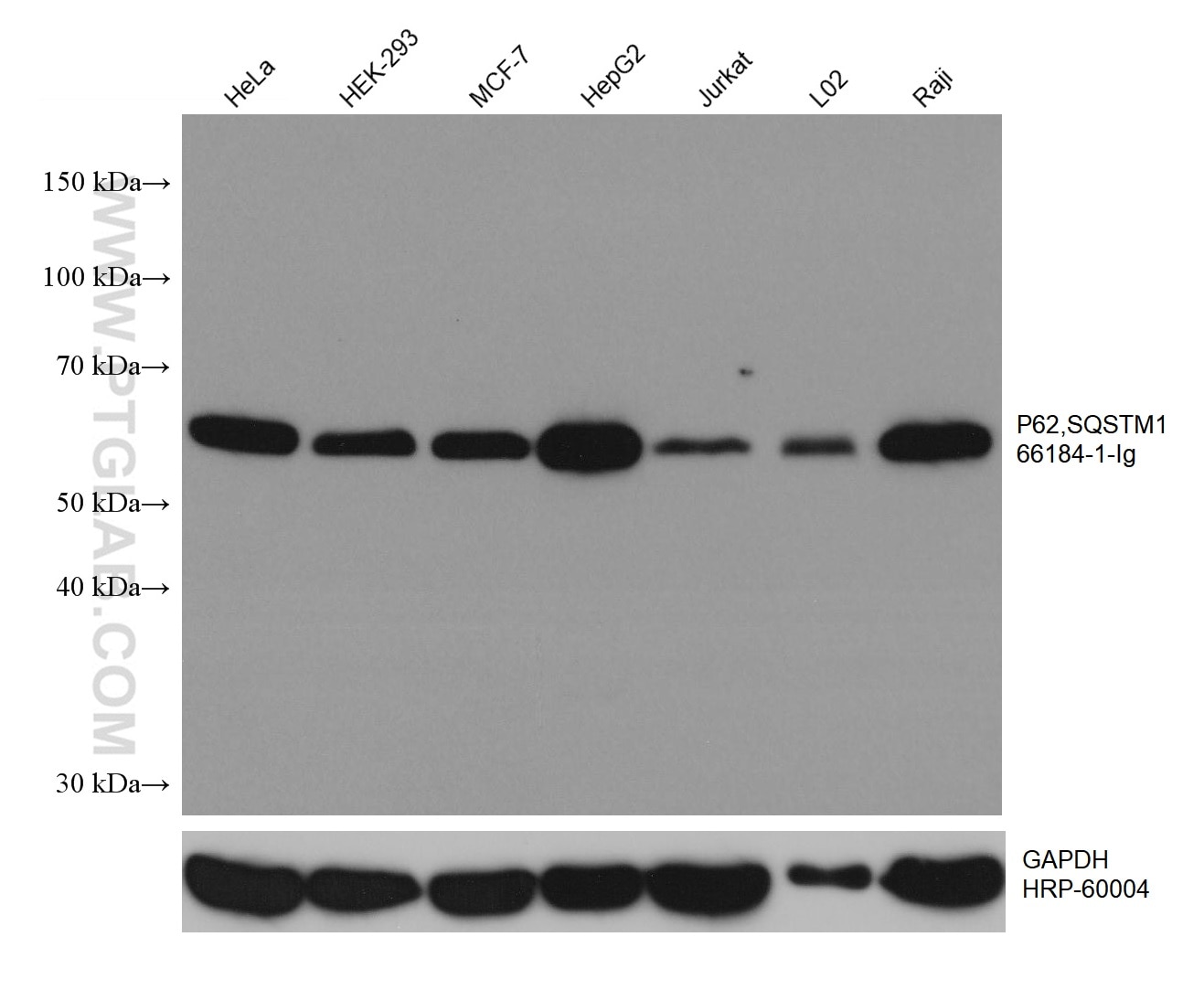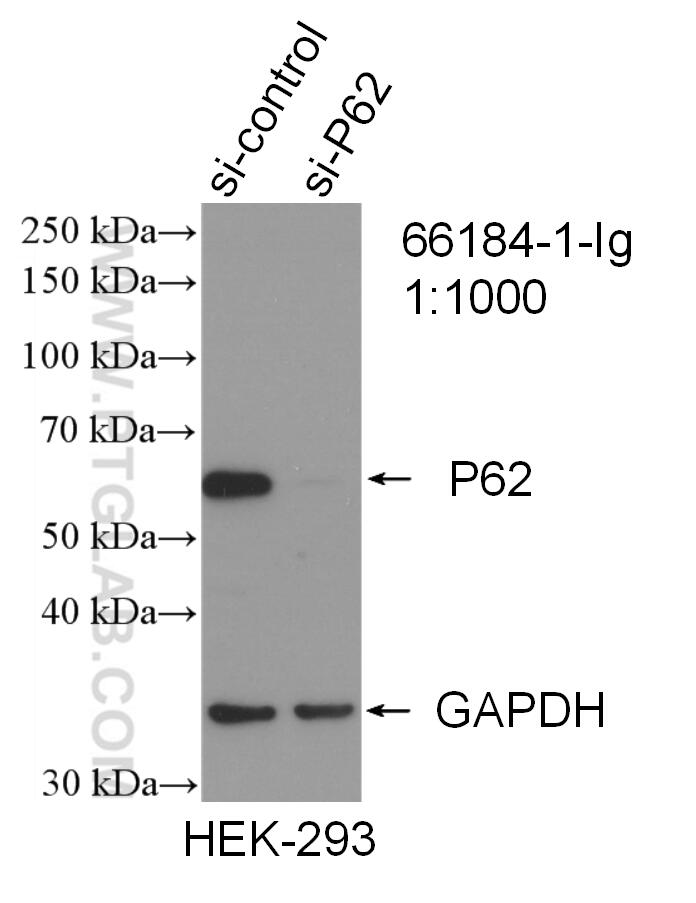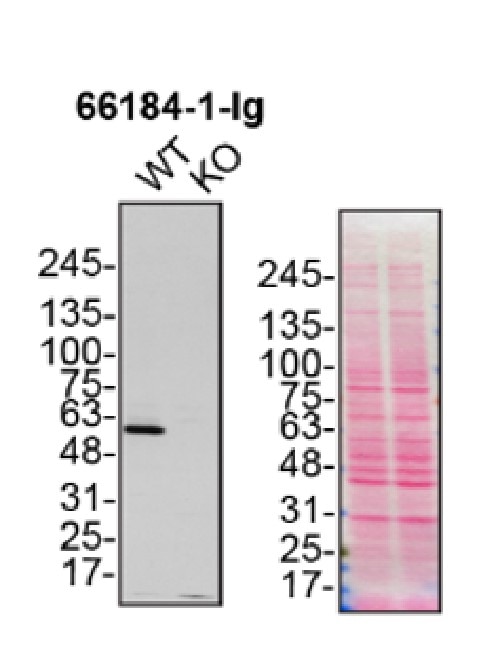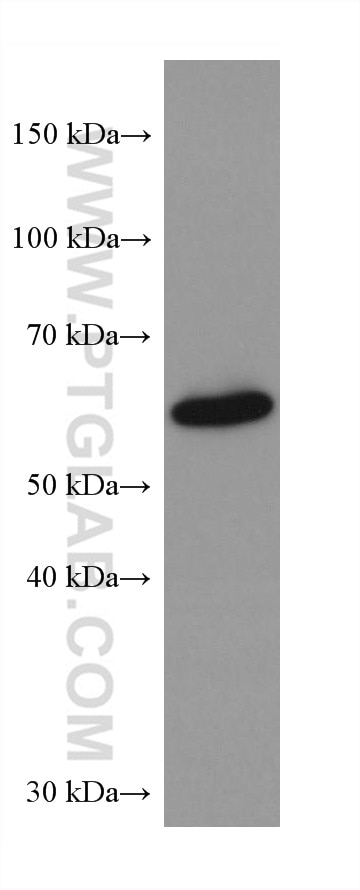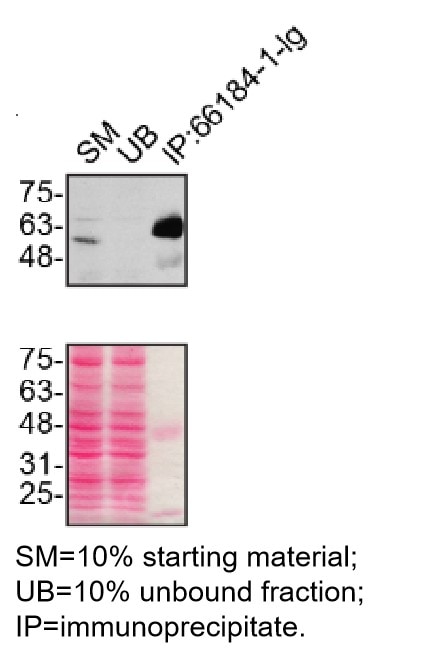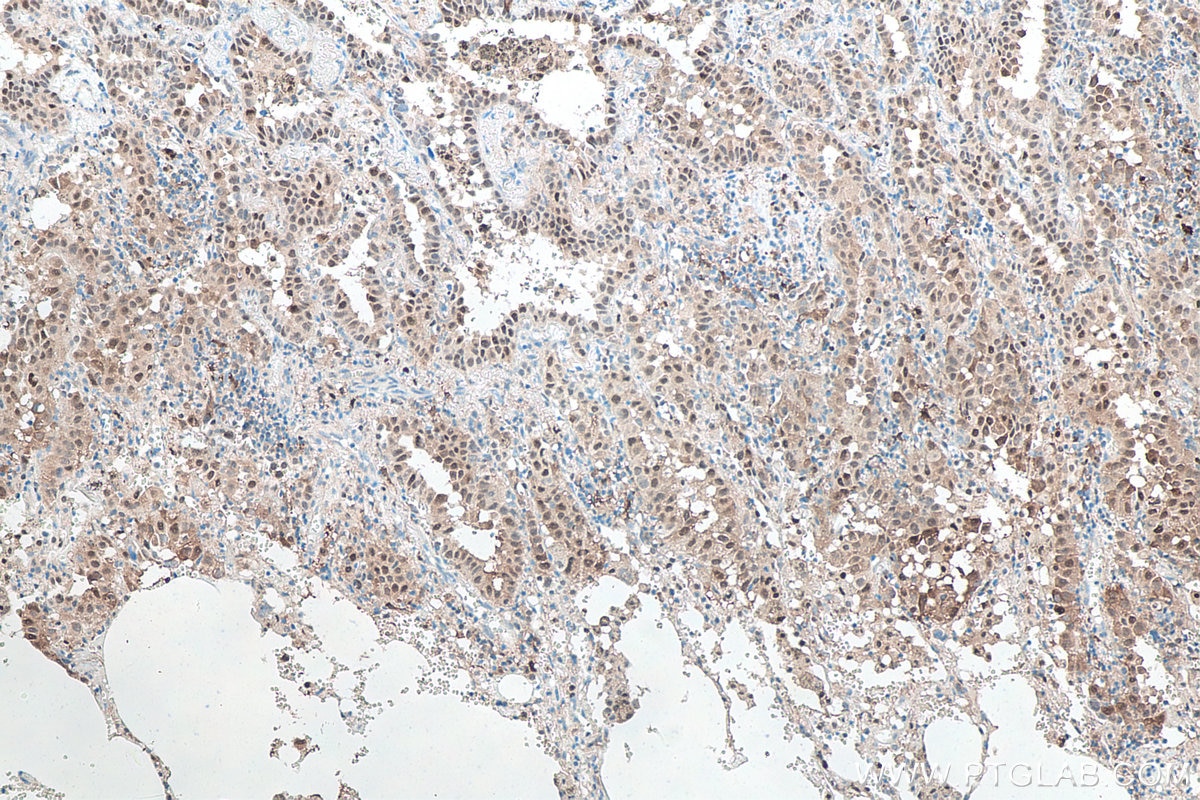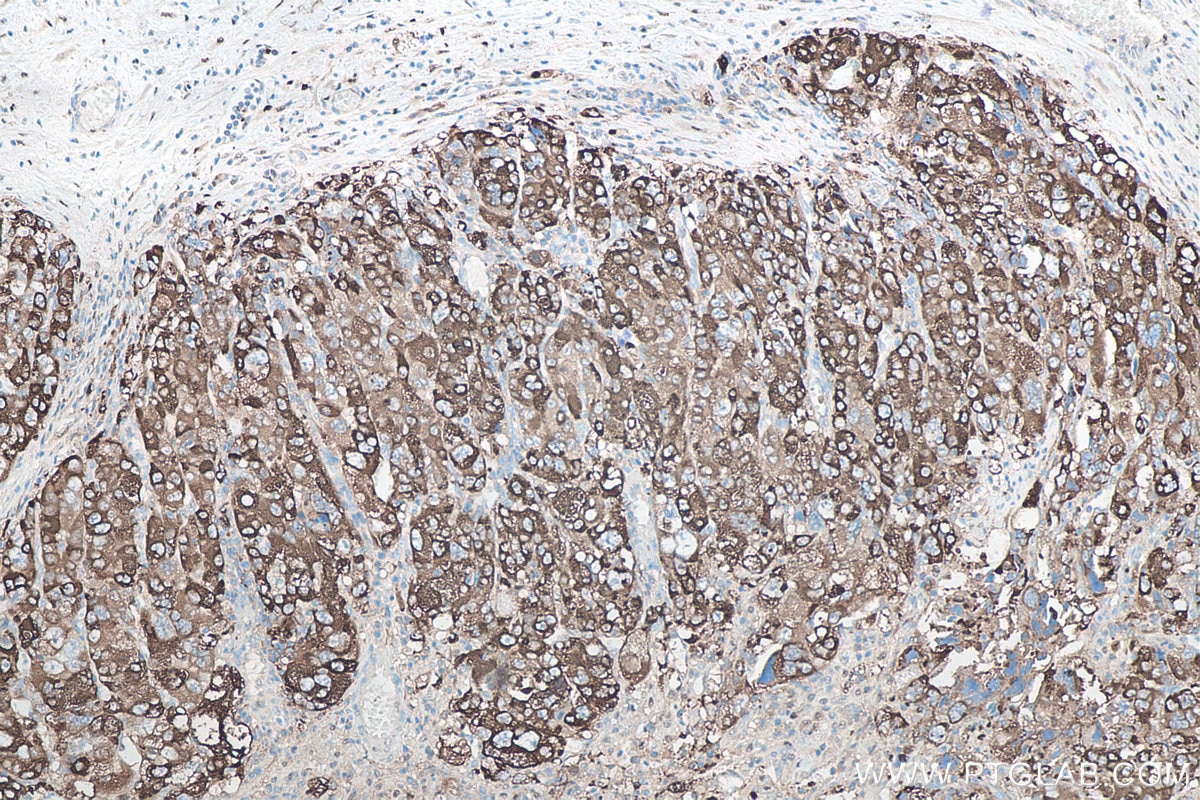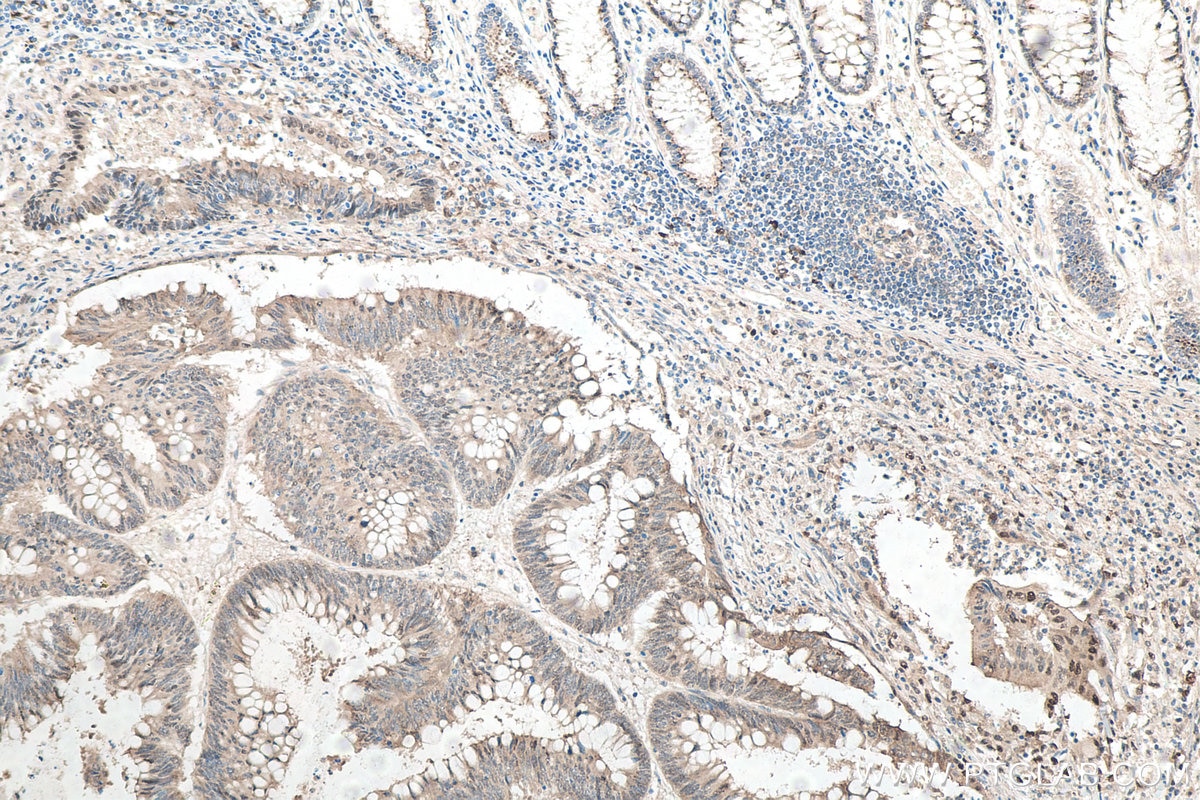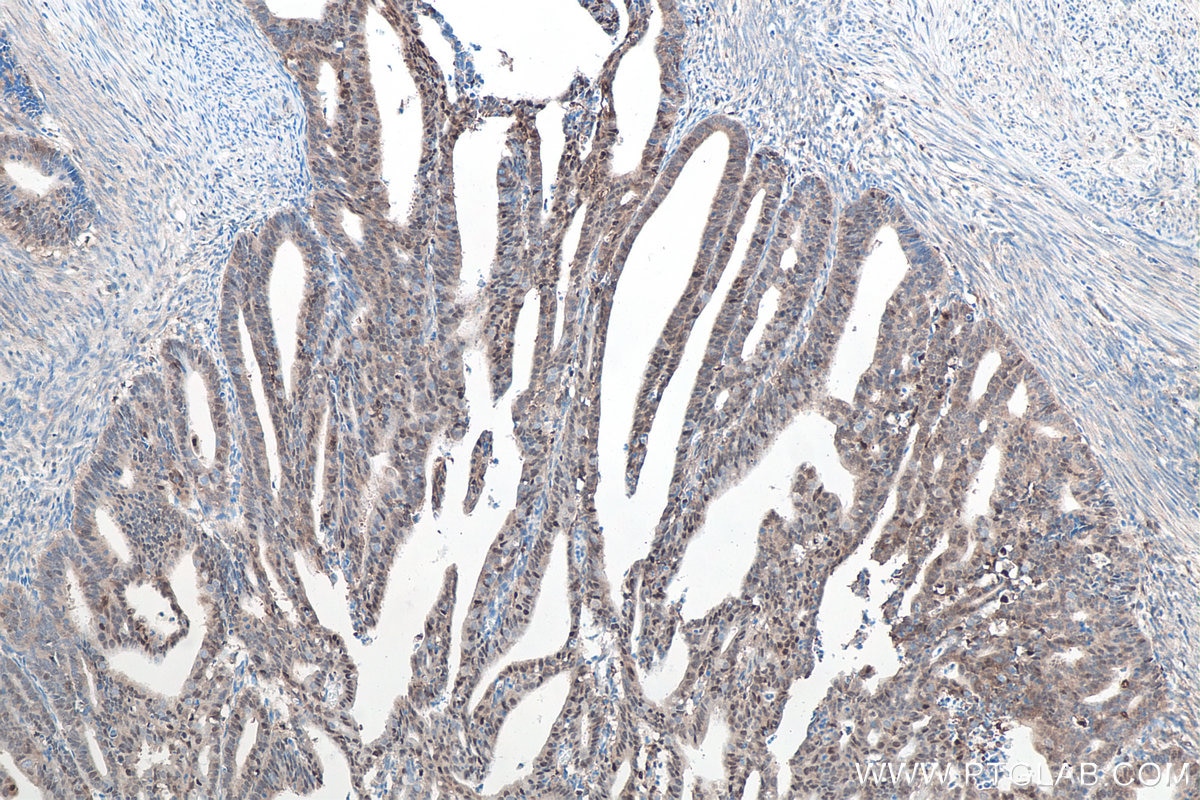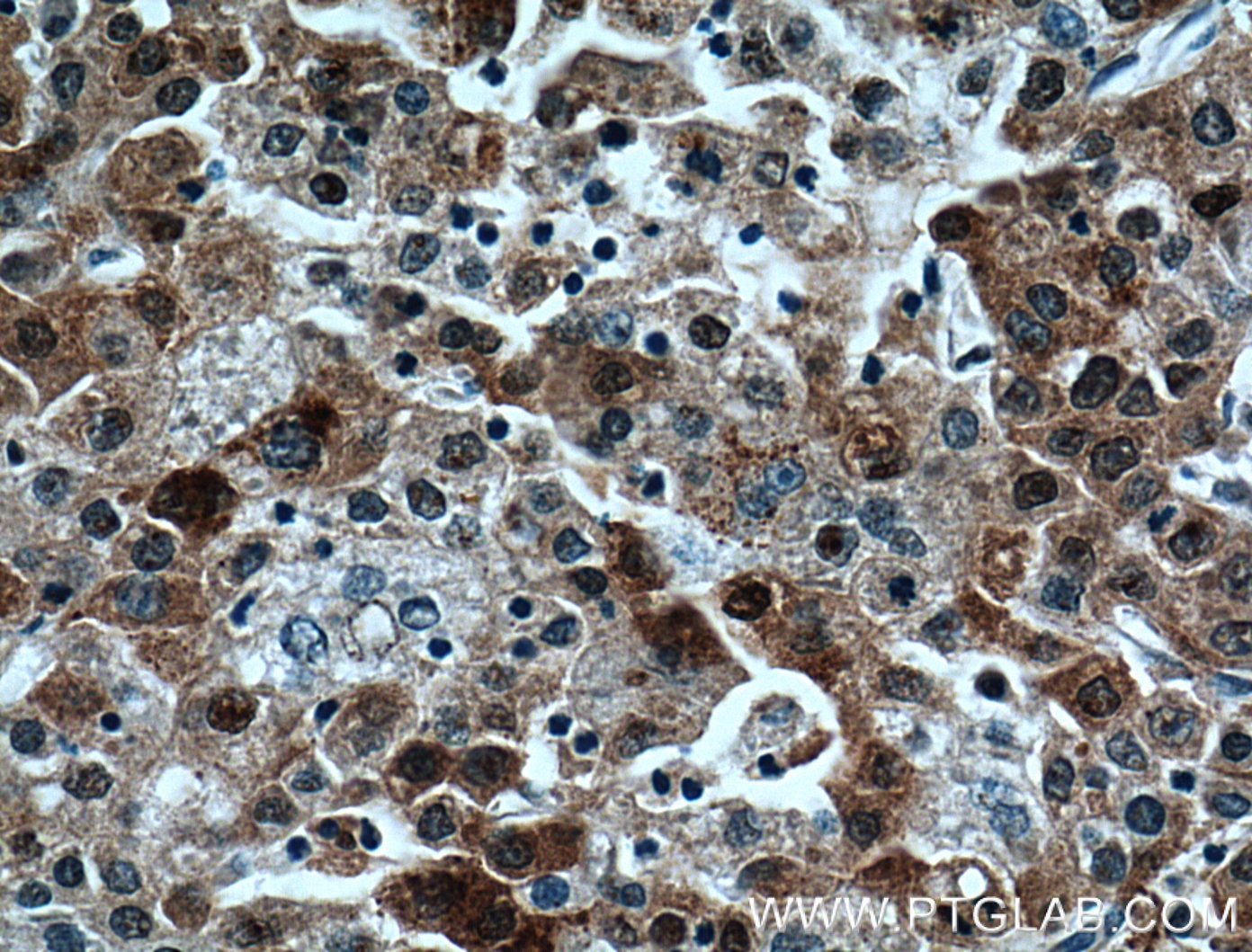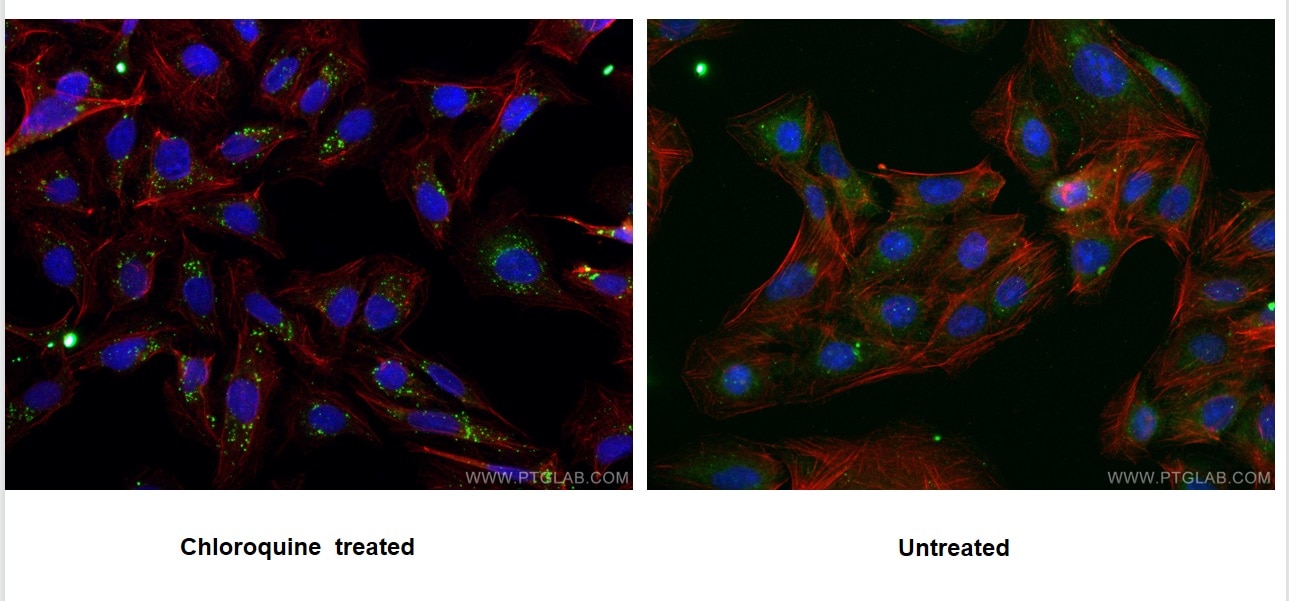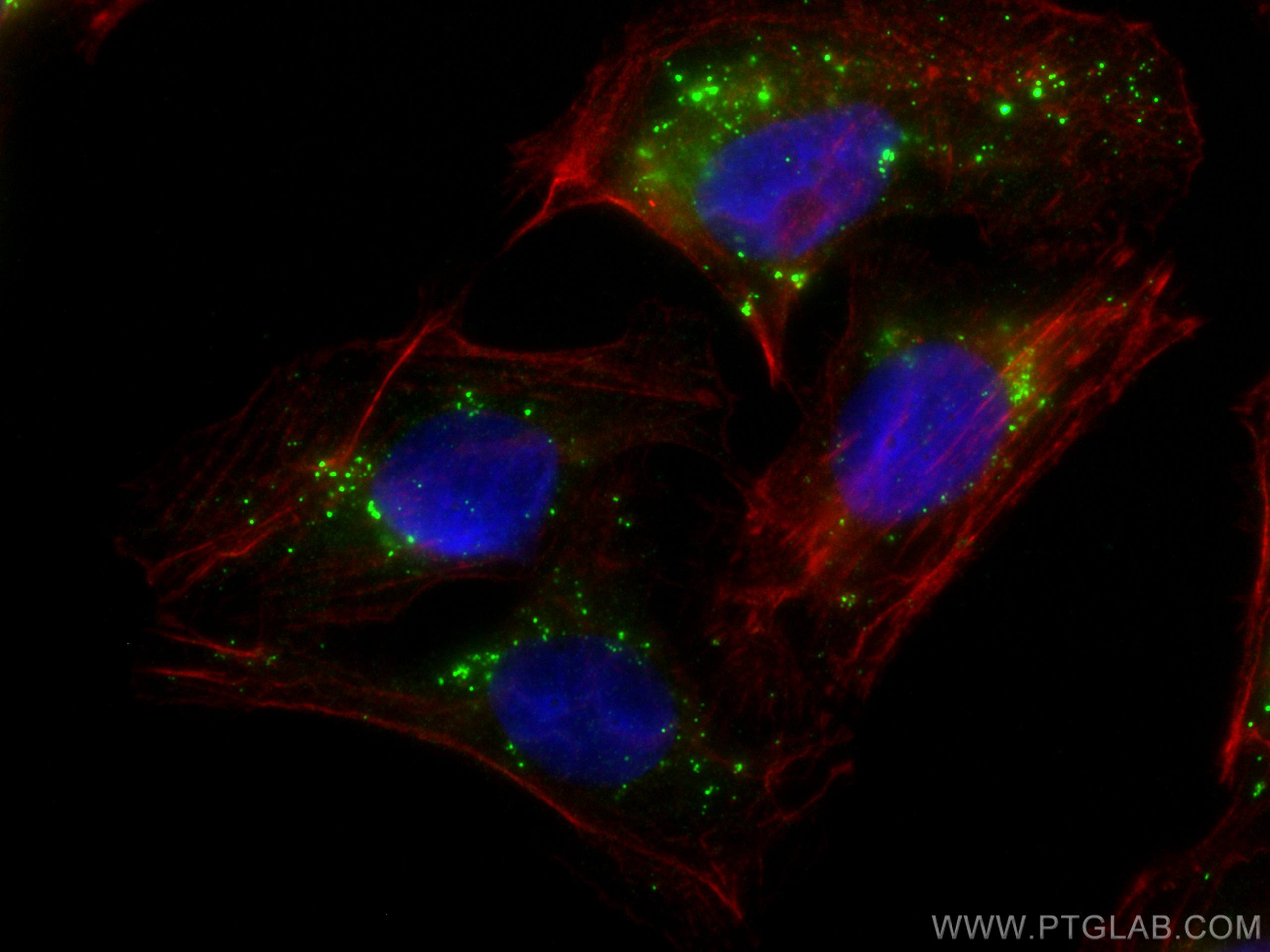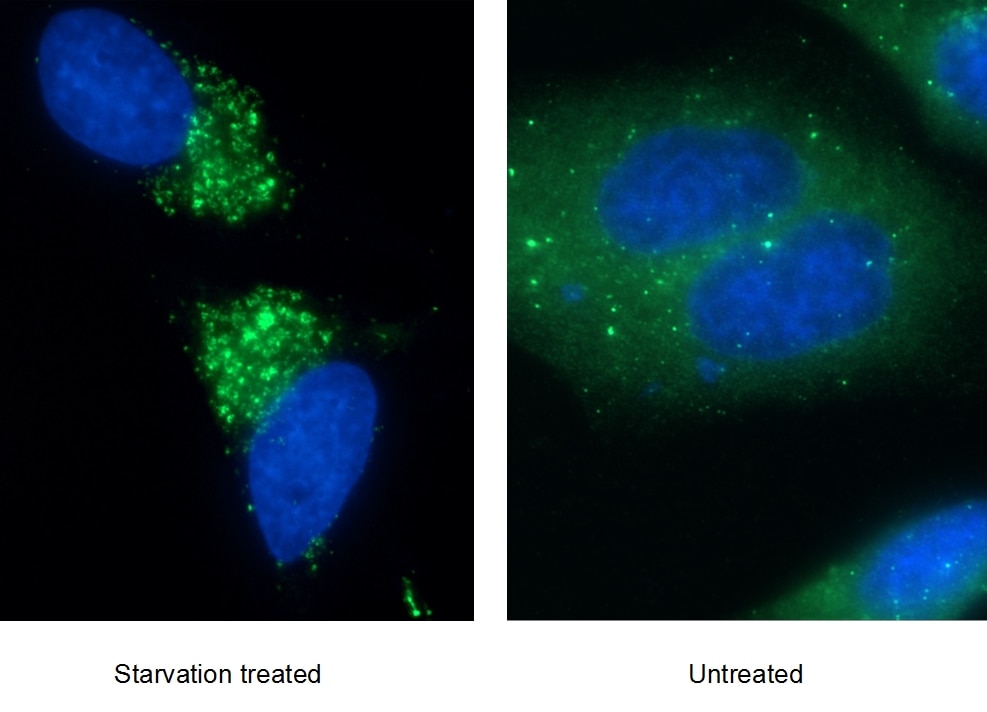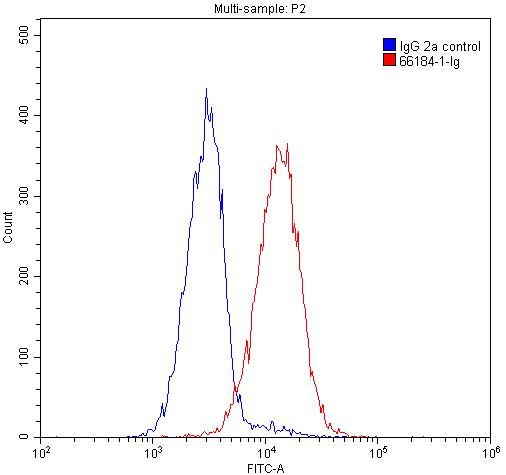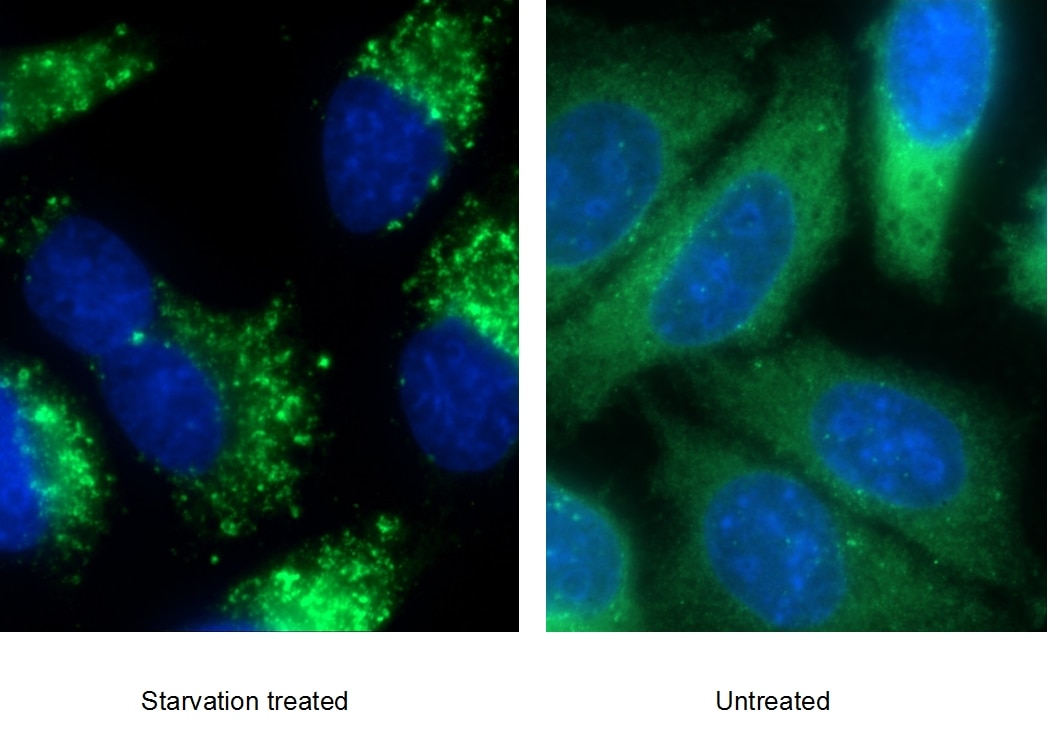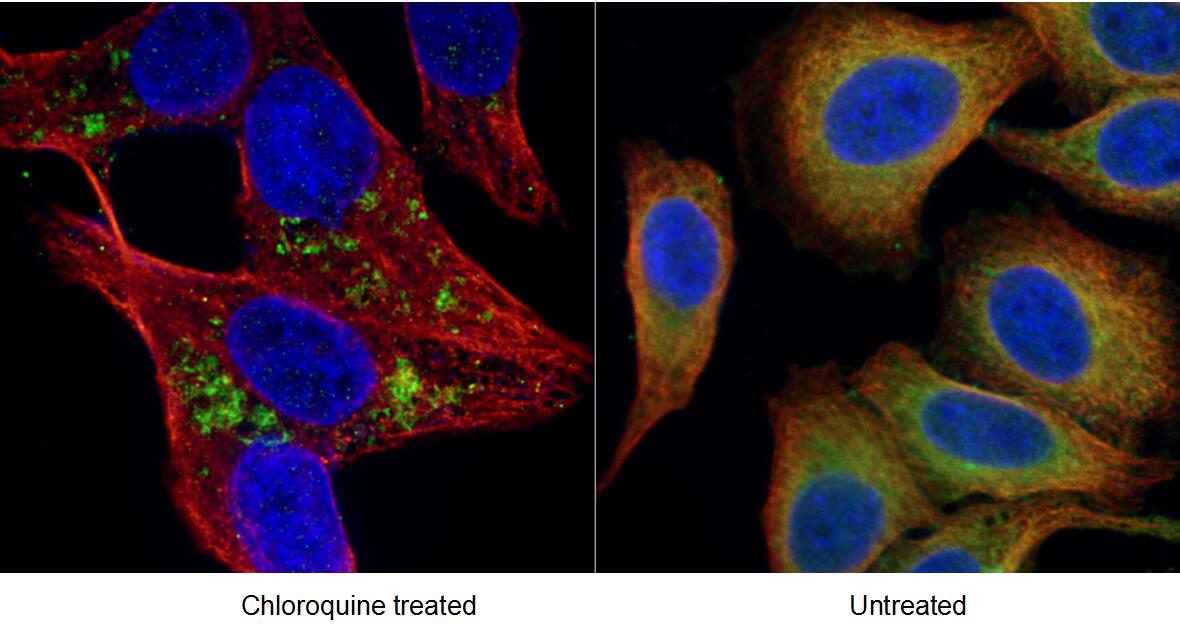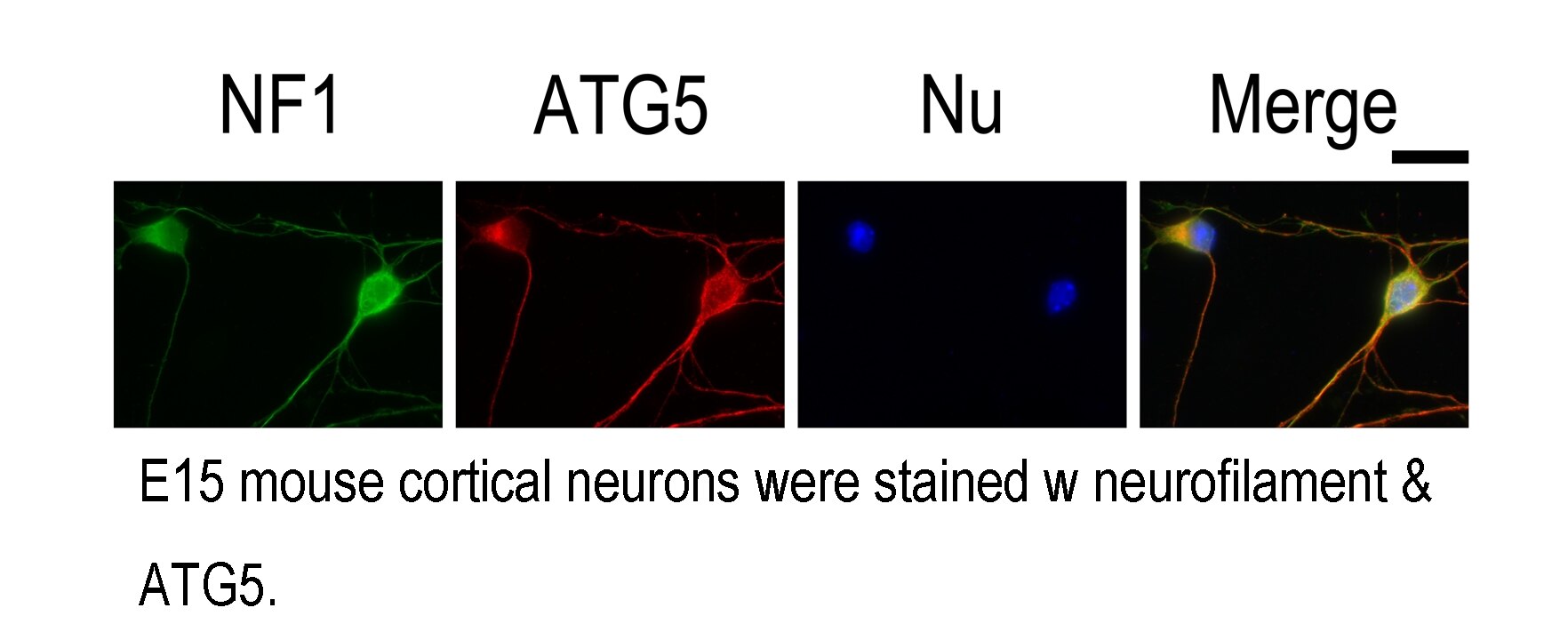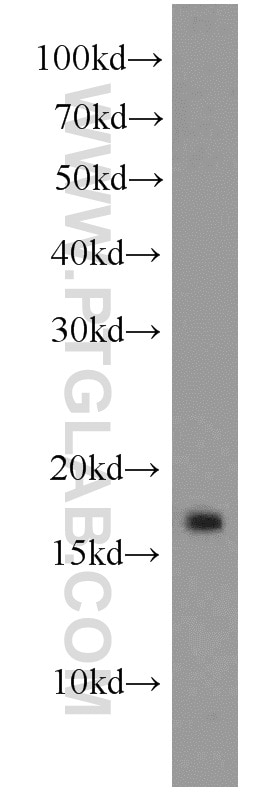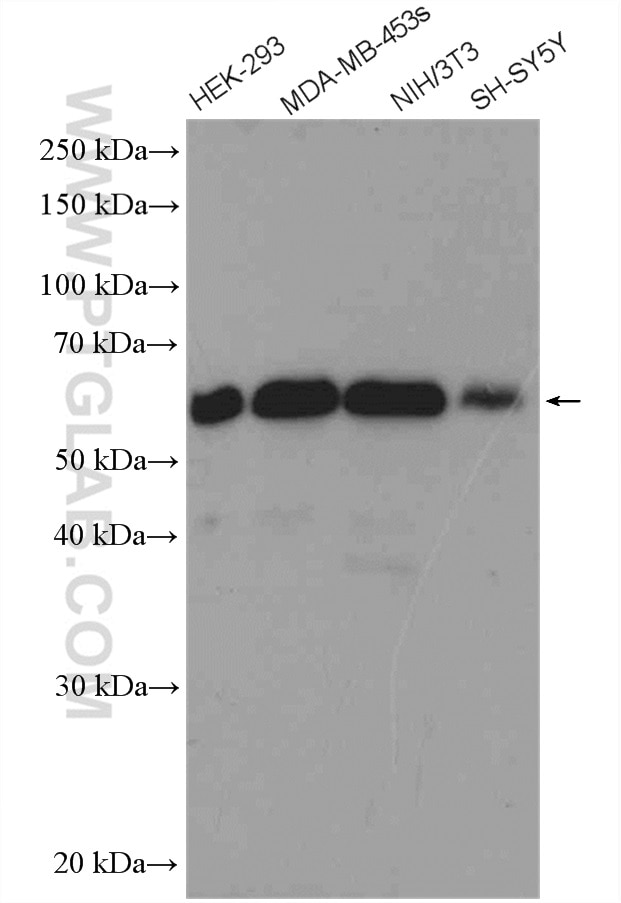- Featured Product
- KD/KO Validated
P62,SQSTM1 Monoklonaler Antikörper
P62,SQSTM1 Monoklonal Antikörper für FC, IF, IHC, IP, WB, ELISA
Wirt / Isotyp
Maus / IgG2b
Getestete Reaktivität
human und mehr (3)
Anwendung
WB, IP, IHC, IF, FC, CoIP, ELISA
Konjugation
Unkonjugiert
CloneNo.
1H5C1
Kat-Nr. : 66184-1-Ig
Synonyme
Galerie der Validierungsdaten
Geprüfte Anwendungen
| Erfolgreiche Detektion in WB | HeLa-Zellen, HEK-293-Zellen, HepG2-Zellen, Jurkat-Zellen, K-562-Zellen, L02-Zellen, MCF-7-Zellen, Raji-Zellen, U2OS-Zellen |
| Erfolgreiche IP | U2OS-Zellen |
| Erfolgreiche Detektion in IHC | humanes Lungenkarzinomgewebe, humanes Endometriumkarzinomgewebe, humanes Kolonkarzinomgewebe, humanes Leberkarzinomgewebe Hinweis: Antigendemaskierung mit TE-Puffer pH 9,0 empfohlen. (*) Wahlweise kann die Antigendemaskierung auch mit Citratpuffer pH 6,0 erfolgen. |
| Erfolgreiche Detektion in IF | U2OS-Zellen, Ausgehungerte HepG2-Zellen, mit Chloroquin behandelte U2OS-Zellen |
| Erfolgreiche Detektion in FC | Jurkat-Zellen |
Empfohlene Verdünnung
| Anwendung | Verdünnung |
|---|---|
| Western Blot (WB) | WB : 1:5000-1:50000 |
| Immunpräzipitation (IP) | IP : 0.5-4.0 ug for 1.0-3.0 mg of total protein lysate |
| Immunhistochemie (IHC) | IHC : 1:2000-1:8000 |
| Immunfluoreszenz (IF) | IF : 1:200-1:800 |
| Durchflusszytometrie (FC) | FC : 1:10-1:100 |
| It is recommended that this reagent should be titrated in each testing system to obtain optimal results. | |
| Sample-dependent, check data in validation data gallery | |
Veröffentlichte Anwendungen
| WB | See 96 publications below |
| IHC | See 9 publications below |
| IF | See 15 publications below |
| IP | See 2 publications below |
| CoIP | See 2 publications below |
Produktinformation
66184-1-Ig bindet in WB, IP, IHC, IF, FC, CoIP, ELISA P62,SQSTM1 und zeigt Reaktivität mit human
| Getestete Reaktivität | human |
| In Publikationen genannte Reaktivität | human, Affe, Hausschwein, Rind |
| Wirt / Isotyp | Maus / IgG2b |
| Klonalität | Monoklonal |
| Typ | Antikörper |
| Immunogen | P62,SQSTM1 fusion protein Ag13131 |
| Vollständiger Name | sequestosome 1 |
| Berechnetes Molekulargewicht | 48 kDa |
| Beobachtetes Molekulargewicht | 62 kDa |
| GenBank-Zugangsnummer | BC017222 |
| Gene symbol | SQSTM1 |
| Gene ID (NCBI) | 8878 |
| Konjugation | Unkonjugiert |
| Form | Liquid |
| Reinigungsmethode | Protein-A-Reinigung |
| Lagerungspuffer | PBS mit 0.02% Natriumazid und 50% Glycerin pH 7.3. |
| Lagerungsbedingungen | Bei -20°C lagern. Nach dem Versand ein Jahr lang stabil Aliquotieren ist bei -20oC Lagerung nicht notwendig. 20ul Größen enthalten 0,1% BSA. |
Hintergrundinformationen
Sequestosome 1 (SQSTM1/p62) is a multifunctional adaptor protein implicated in selective autophagy, cell signaling pathways, and tumorigenesis. p62 has been implicated in shuttling ubiquitinated and sometimes aggregated proteins for autophagic degradation. As a autophagy-specific substrate, p62 is degraded during the autophagic process, which makes intracellular level of p62 as a marker for autophagy flux. p62 is at the cross-roads of several signaling pathways including Ras/ Raf/ MAPK and NFκB and plays important role in cancer. p62 is a component of inclusion bodies/ protein aggregates found in human diseases, including Huntington's disease, Alzheimer's disease, Parkinson's disease in the brain, and nephropathic cystinosis in kidney (PMID: 22074114, 22860231, 22714671). The molecular weight of p62 is predicted as 48/ 38 kDa, while western blot analyses using this antibody demonstrate the major band around 60-62 kDa in various tissues.
Protokolle
| Produktspezifische Protokolle | |
|---|---|
| WB protocol for P62,SQSTM1 antibody 66184-1-Ig | Protokoll herunterladen |
| IHC protocol for P62,SQSTM1 antibody 66184-1-Ig | Protokoll herunterladen |
| IF protocol for P62,SQSTM1 antibody 66184-1-Ig | Protokoll herunterladen |
| Standard-Protokolle | |
|---|---|
| Klicken Sie hier, um unsere Standardprotokolle anzuzeigen |
Publikationen
| Species | Application | Title |
|---|---|---|
Gastroenterology Proteomic characterization identifies clinically relevant subgroups of gastrointestinal stromal tumors | ||
Acta Neuropathol Upstream open reading frame with NOTCH2NLC GGC expansion generates polyglycine aggregates and disrupts nucleocytoplasmic transport: implications for polyglycine diseases. | ||
Nat Commun IL-6 regulates autophagy and chemotherapy resistance by promoting BECN1 phosphorylation. | ||
Mol Neurodegener Collusion of α-Synuclein and Aβ aggravating co-morbidities in a novel prion-type mouse model | ||
J Cell Biol CHMP2B regulates TDP-43 phosphorylation and cytotoxicity independent of autophagy via CK1. | ||
Theranostics The c-Myc/miR-27b-3p/ATG10 regulatory axis regulates chemoresistance in colorectal cancer. |
Rezensionen
The reviews below have been submitted by verified Proteintech customers who received an incentive forproviding their feedback.
FH David (Verified Customer) (01-13-2020) | Used for immunocytochemistry. Low signal in control cells, but very strong response when treated with bafilomycin A. Very obvious p62 puncta in cells.
|
